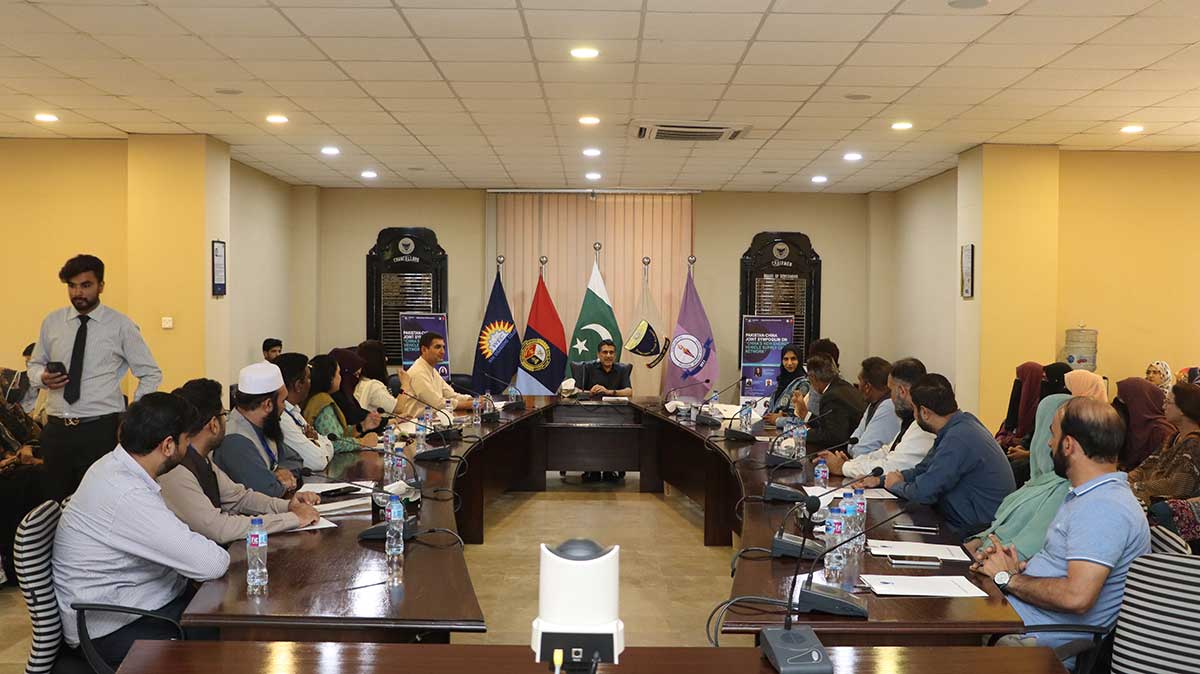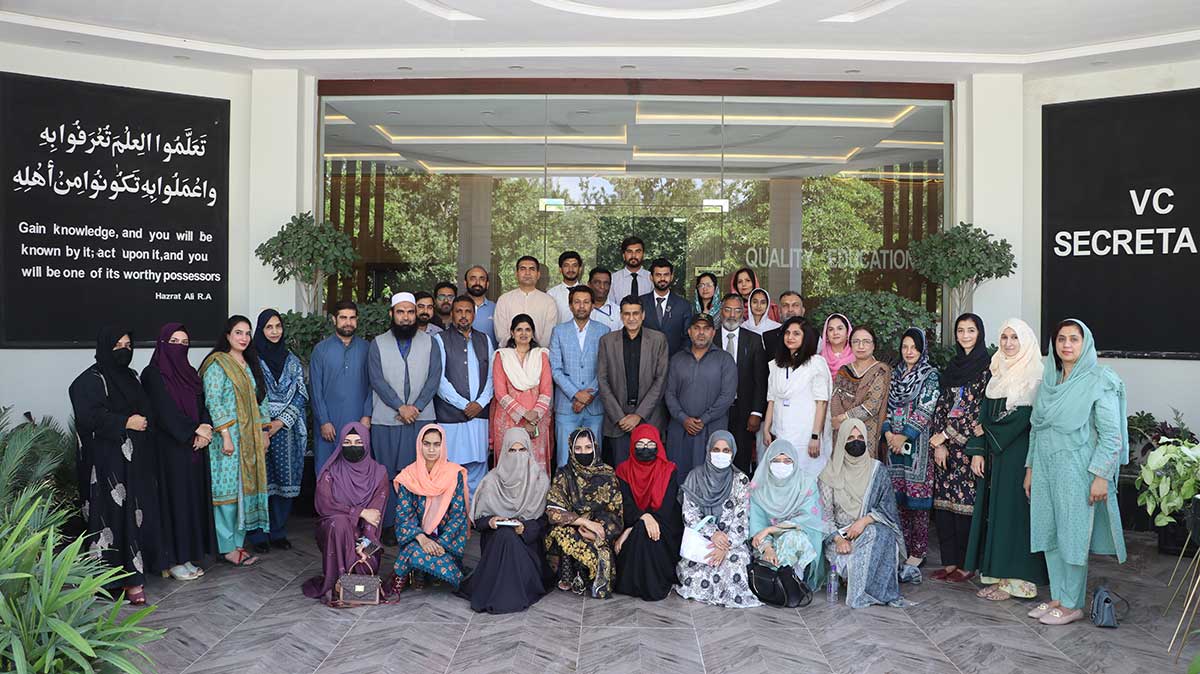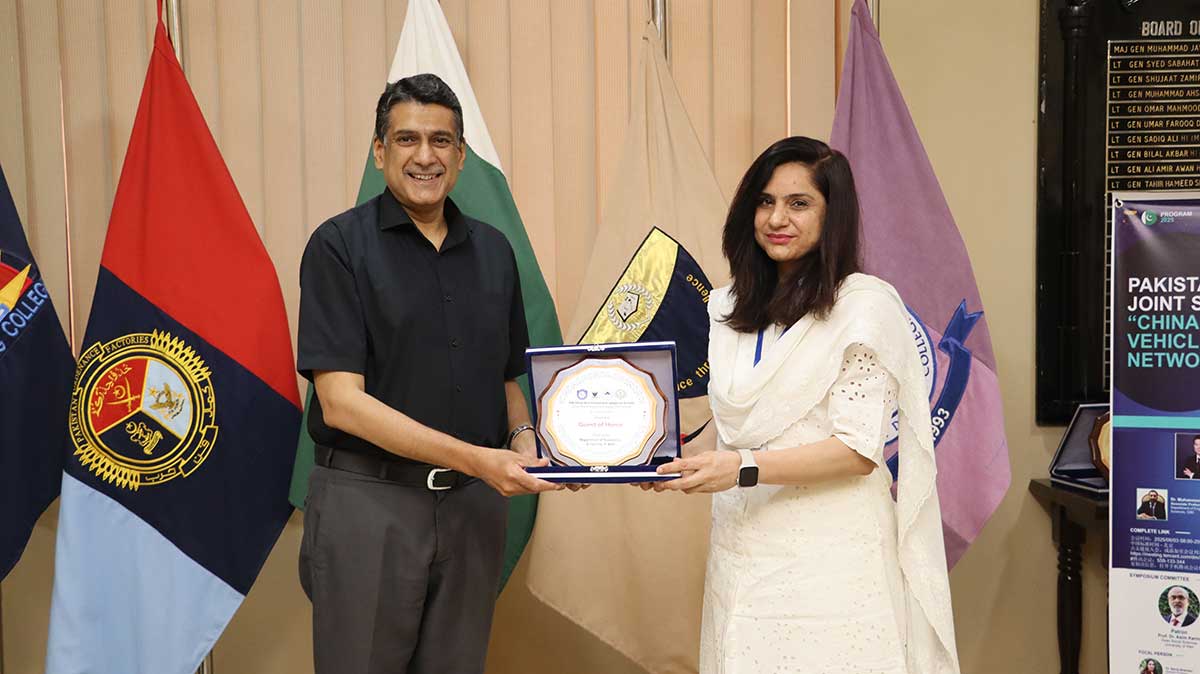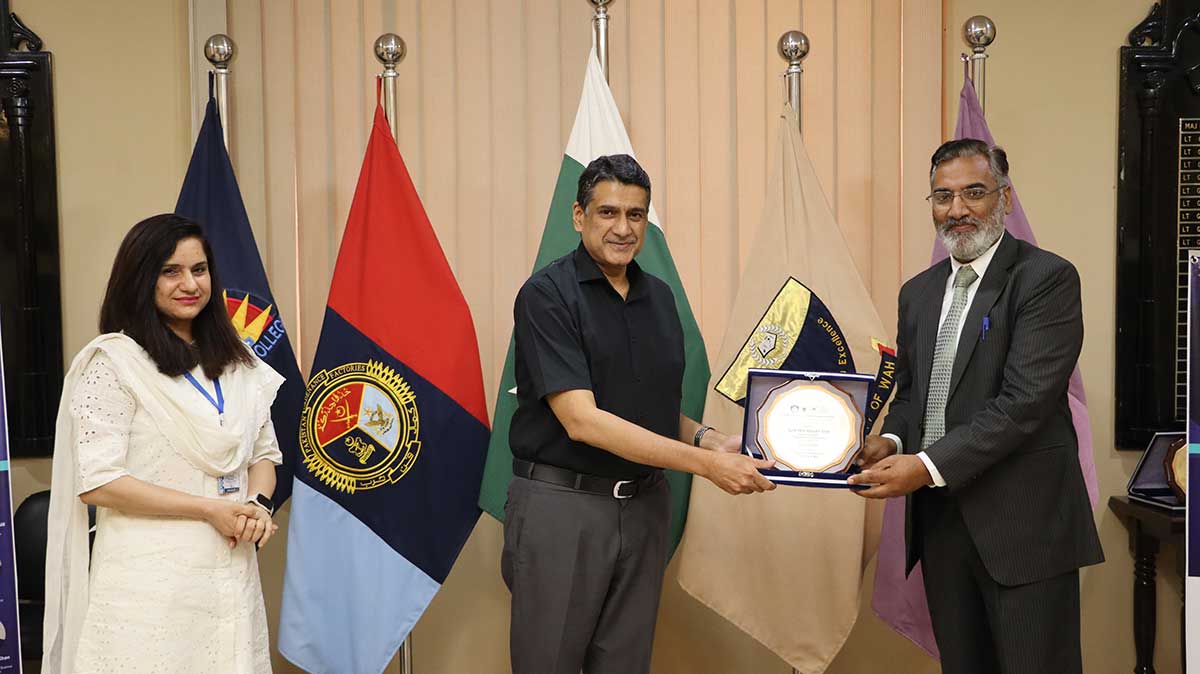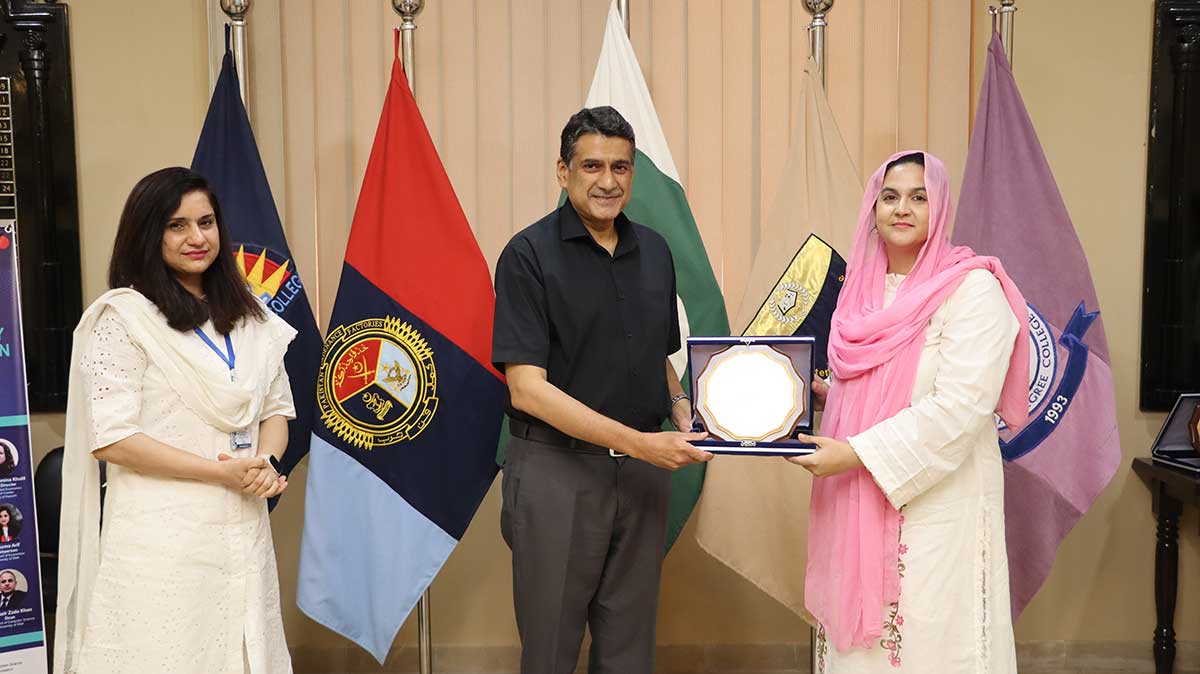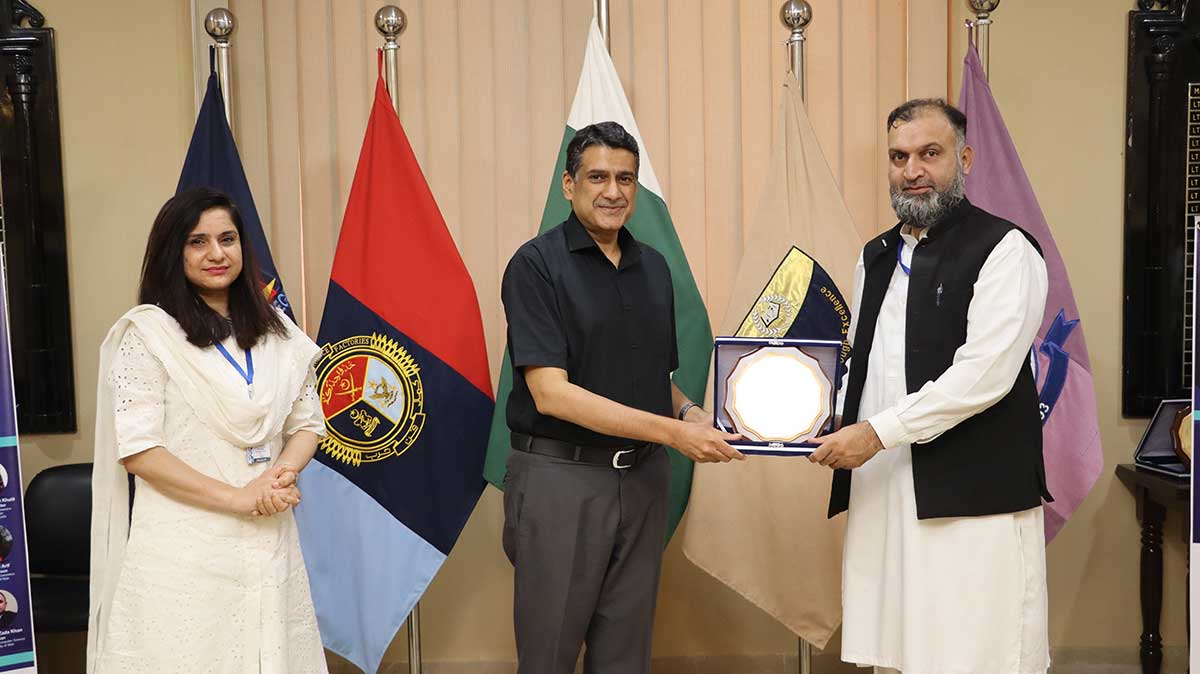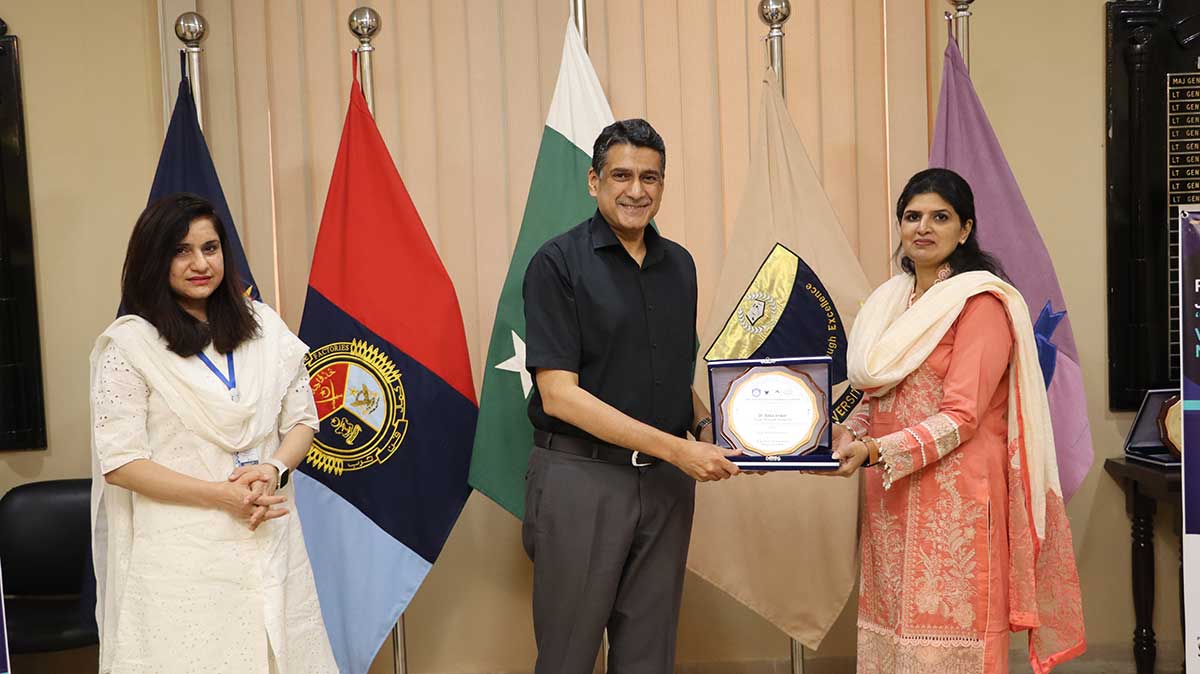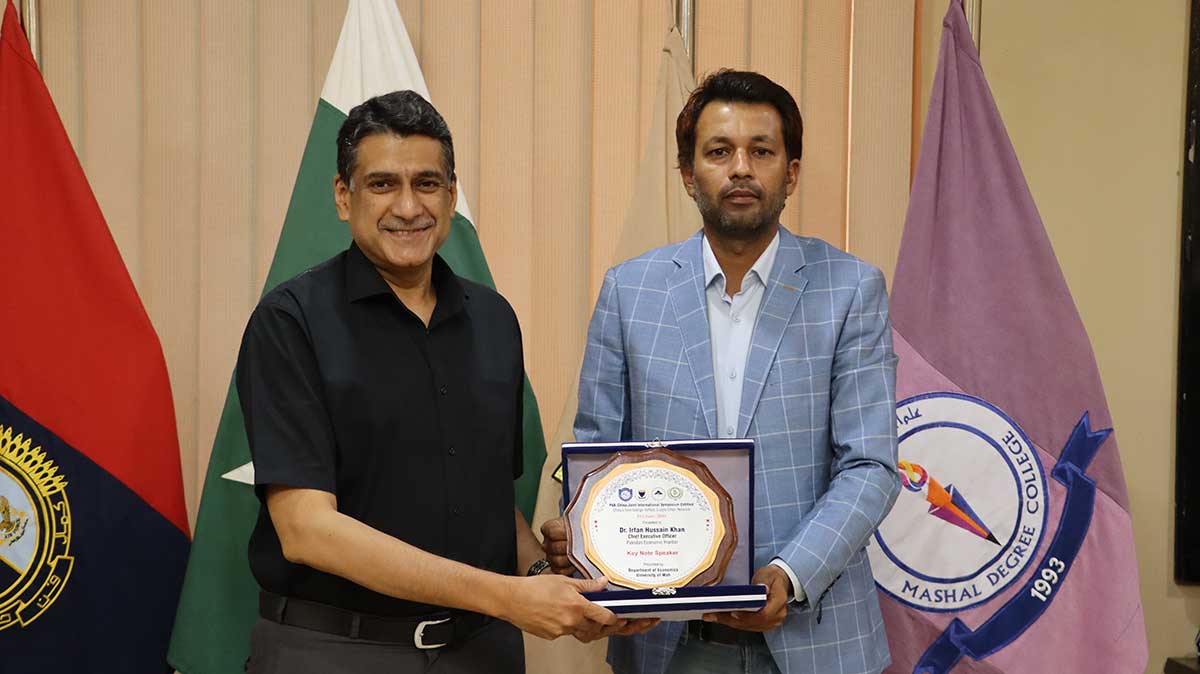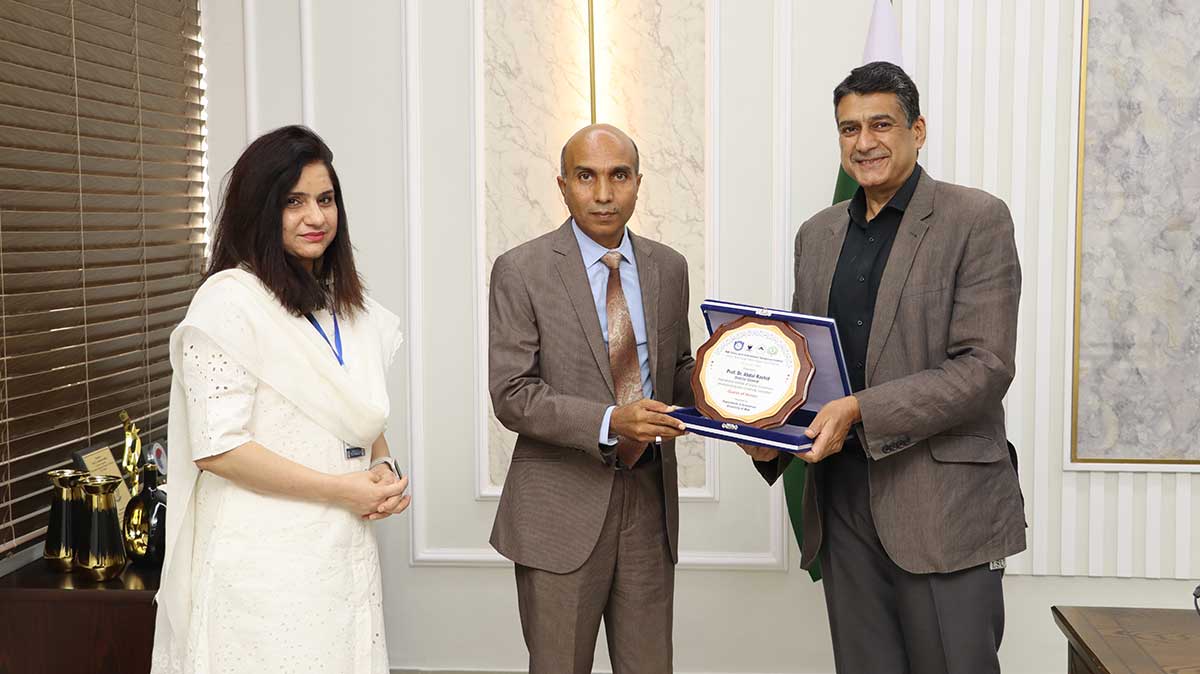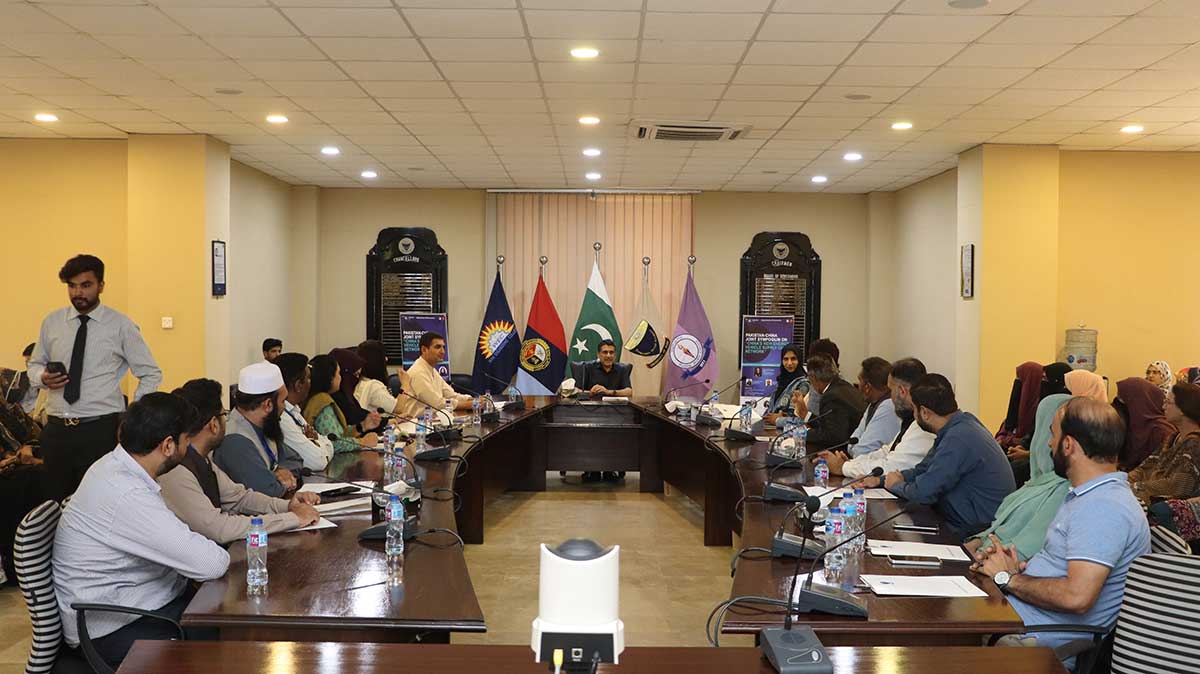Department of Economics, University of Wah, in collaboration with the China University of Geosciences, Beijing, organized the Pakistan-China Joint Symposium titled “China’s New Energy Vehicle (NEV) Supply Chain Network” on 03 June 2025. The day-long event, jointly funded by the Pakistan Science Foundation (PSF) and the National Natural Science Foundation of China (NSFC), provided a platform for dialogue among scholars, researchers, and policymakers from both countries.
The symposium brought together participants from various national and international universities to explore advancements in China’s NEV sector and assess opportunities for Pakistan. It also marked the conclusion of the Joint Scientific Exchange Project (2022–2025), which promoted academic collaboration between Pakistan and China. In her opening address, Dr. Asma Arif, Chairperson, Department of Economics, University of Wah, shared key outcomes of the project: three doctoral and seven Master’s theses, two policy papers, four research publications in SCI/SSCI journals, multiple seminars, and an international academic visit to China.
The inaugural session featured Prof. Dr. Abdul Rashid, Director General, IIIE, International Islamic University Islamabad, as Guest of Honor from Pakistan. He emphasized the need for sustainable innovation and stronger research cooperation. Keynote speeches by Dr. ShaoChao Ma, Dr. YanYan Tang, and Prof. Li Huajiao from the China University of Geosciences covered themes like sustainable development, industrial cooperation, and NEVs in a low-carbon economy. National experts including Dr. Saba Anwar (PIDE), Dr. Irfan Hussain Khan (Pakistan Economic Frontier), Hammad Naqi Khan (WWF Pakistan), Prof. Dr. Samina Khalil, Prof. Dr. Ghulam Abbas (GIKI), and Prof. Dr. Wazir Zada Khan (University of Wah) discussed Pakistan’s economic landscape and NEV integration potential.
Prof. Dr. An Haizhong, Dean, School of Economics and Management, China University of Geosciences, addressed the audience as Guest of Honor from China. He acknowledged the strategic ties between the two nations and commended Prof. Dr. Jameel-Un Nabi, Vice Chancellor, University of Wah, for advancing international academic collaboration.
The second session explored technical aspects of NEV development, focusing on policy frameworks, innovation, and Pakistan’s readiness to join the global value chain. Prof. Dr. Jameel-Un Nabi, as Chief Guest, highlighted the importance of international partnerships in driving research and innovation.
The event concluded with a souvenir distribution ceremony and closing remarks by the Vice Chancellor. The symposium underscored the evolution of China’s NEV supply chain and reaffirmed the potential for sustained academic and industrial collaboration between Pakistan and China in energy transition and automotive innovation.

